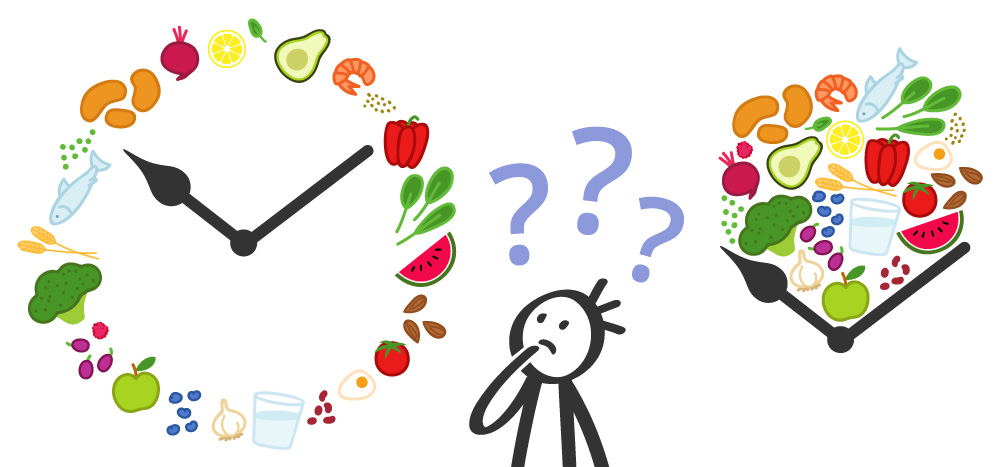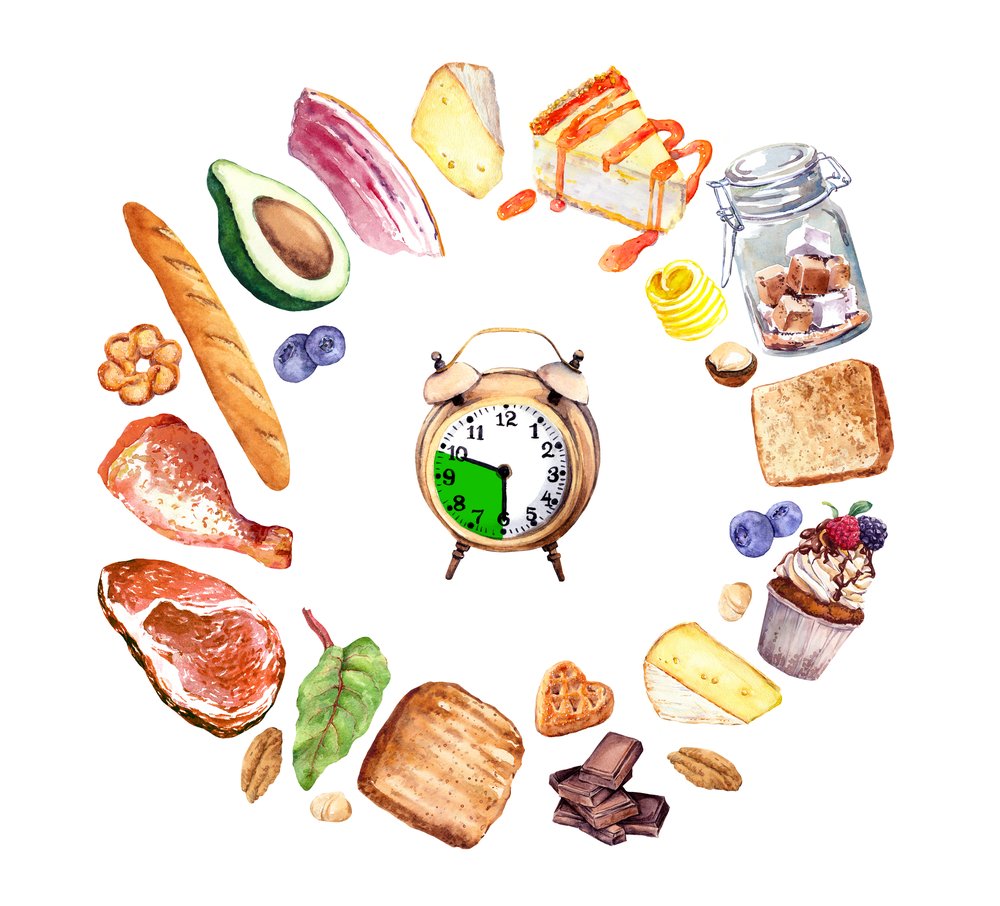Intermittent Fasting Over 60: How to Manage Your Weight And Stay Healthy

Intermittent fasting is a tried-and-true way to improve your overall health. Several studies have shown that following this relatively easy diet can help you:
- Lose weight
- Boost your metabolism and fat burning
- Slow down the aging process
- Improve your skin
- Improve brain health and cognitive functions
- Increase longevity
The good news: you can easily reap all the benefits that intermittent fasting has to offer.
Let’s explore what can happen if you try to start fasting on your own, without any help from nutritionists or a personalized intermittent fasting plan that covers all your needs.
Intermittent Fasting Over 60: 4 Tips and Tricks for Success
As we age, our bodies go through numerous changes, including a slower metabolism, decreased muscle mass, and a greater risk of chronic diseases. Intermittent fasting might help to get rid of excess weight, boost immunity, and get numerous health benefits for those over 60. Follow these 4 tips for the easiest weight loss journey:
#1 Choose the right fasting plan

Advertisement
Intermittent fasting is incredibly simple in essence, but it’s also pretty easy to do it incorrectly and stall your weight as a result.
If you look around on the internet, you’ll find lots of different fasting options, but not all of them are created equal – especially when you’re over 60.
First, there’s the basic stuff. Choosing a fasting plan that diverges too far from your regular eating schedule and lifestyle will make you feel restricted, which can easily lead to food cravings and overeating. If you feel hungry and food-deprived all the time, it’s easy to get discouraged.
Then, there are certain age-related factors that also need to be considered.
“When you hit 60, your metabolism is already much slower than it used to be,” says nutrition expert Christine Ellis. “If you choose the wrong fasting plan and put your body under too much pressure, it will release high levels of cortisol (stress hormone), which can slow down your metabolism even more. This could stall your progress – or worse, reverse it.”
The beauty of intermittent fasting lies in its flexibility – there’s a plan that works for everyone. Even the trickiest diet can become easier to stick with if you follow a carefully crafted plan that fits naturally into your existing lifestyle.
Men or women over 60 should thought about getting a proper fasting plan based on the current body weight, body fat percentage, and dietary needs.
Pro Tip #1: Not all fasting plans may fit your lifestyle or help boost your specific metabolic rate. You might want to consult a registered dietitian to help you make this decision and assess your lifestyle, eating habits, and dietary needs. If you don’t have one, here’s a home alternative: DoFasting is a professionally-designed app that does all the work for you.
#2 Macronutrients are important
The one greatest thing about intermittent fasting is it allows a lot of wiggle room in your daily diet. That’s why people love it so much and what actually makes it an effective weight-loss tool – your favorite treats lose their “gorge” appeal because they aren’t ever off-limits.
But that’s also where it becomes a little tricky when you do it on your own. Because it’s easy to take it too far.
You can definitely have your favorite treats without destroying any progress. But what’s key is finding that happy medium between eating what you love and a healthy, well-rounded diet.
And that becomes especially important when you hit your 60s. Why?
“As you age, your metabolism starts to slow. Your body needs a certain amount of nutrients, including carbs, protein, and fat, plus the vitamins, minerals, and antioxidants that come with those foods to keep it going,” says nutritionist Christine Ellis.
“If it doesn’t get enough, it simply won’t be able to burn calories efficiently and will end up storing them as fat. That doesn’t mean you have to change your whole diet drastically – just vary your foods a little.”
Pro Tip #2: YES! Eating the foods you love and losing weight is possible. But you will need to balance out carbs, fiber, fats, and protein-based on your age, physical shape, and medical conditions if you want to achieve sustainable results. The easiest way to do that is to find a personalized fasting program that offers a custom meal plan based on your needs and preferences, otherwise you can experience weight gain.
#3 Eat the right amount of food

This is the most common, yet easily avoidable, trap people fall into with intermittent fasting.
The equation is quite simple. If you overeat, you could easily undo some of the benefits you’ve gained and hinder your weight loss progress. On the other hand, if you don’t eat enough, you will not only leave yourself feeling hungry, but you might also lose muscle mass, which causes your metabolism to slow.
Consistency is key to maintaining a successful fasting routine. The food quantity matters just as much as the quality of food you put into your body.
“You don’t have to count calories obsessively, but you do need to make sure you eat enough to make it through your next fasting window. If you’re hungry because you didn’t eat a full meal, you’re much more likely to break your fast. Breaking the fast means you will fall out of fat-burning mode,” says Christine.
Pro Tip #3: Intermittent fasting is a time-centered diet, and most plans don’t give any explicit rules about how much you should be eating. Unfortunately, guesswork leaves room for error, and as a result, you might not get the results you want. To increase the fat loss momentum, it’s always recommended to follow a carefully balanced fasting plan that meets your nutritional needs safely.
#4 Don’t give up
Everyone hits the weight loss plateau at some point in their journey.
There will be moments when you may feel like jumping off the wagon and going back to your previous routine.
The surprising outcome of aging is that your old routines don’t work anymore. You need to build new ones that celebrate the new stage of your life.
Quitting is never the best strategy. Before giving up on fasting, you must ask yourself if you have done everything in your power to help it achieve its promised results.
Could it be that your fasting plan is simply not right for your lifestyle? Perhaps you’re not eating the right amount of food? Have you actually given it enough time?
Just a few simple tweaks might be the changes that allow you to continually break through new fat loss levels – quickly and effortlessly.
Conclusion
Intermittent fasting can have a myriad of positive effects on your body, health, and mind. There’s a reason why it’s being hailed as “life-altering” and “transformative.”
But there are unlimited ways to go about it, and what works for others might not be suitable for you. Finding the right plan who would help you to lose weight depends on a whole bunch of factors – your age, body type, lifestyle, and specific dietary needs.
If you follow a carefully balanced intermittent fasting diet, you will not only lose unwanted weight but also do it pretty easily.







Comments (0)